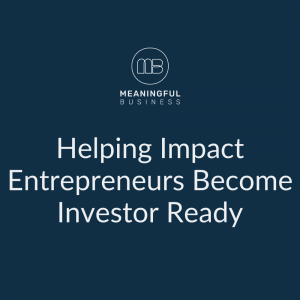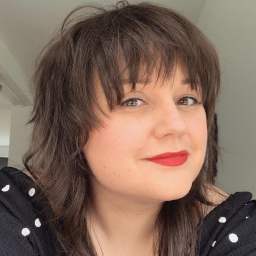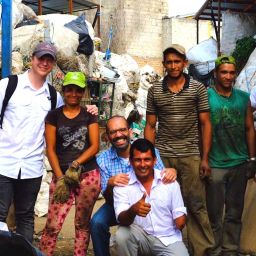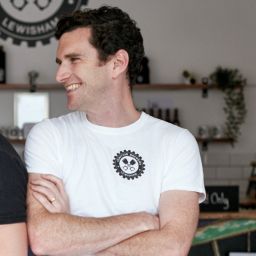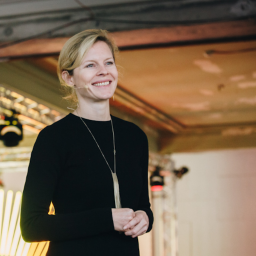Meaningful Business (MB:) As a woman entrepreneur, what has been your fundraising experience to date?
Alexandra Smith (AS): We received seed funding a little over a year ago and, in comparison to many others stories, I think we were fortunate that the experience was relatively simple throughout. We met a VC that we felt understood our ambitions and has supported us during our first round and throughout our first year of development – launch and growth.
Now, onto our second round, we find the landscape more competitive and challenging. We have come up against some bias, and as a mixed-gender team, we are aware that puts us at a disadvantage. However, we are confident that change is happening quickly and as sustainability and ESG (Environmental, Social, Governance) reporting increases, so does the monitoring, tracking and expectation of gender equality and parity within investments.
As an organisation that has been built on purpose, with sustainability at our core, we have found that we attract investors who value the same things as we do.

Alexandra Smith, Co-Founder & Partner, Futureplus and The Sustainability Group
MB: Why do you think such an extreme gender disparity persists within the investment space?
AS: There are 100 reasons for such disparity, and I believe the recent figures are 89% of VC funding to all-male teams, 9% to mixed and 2% to all-female teams. Firstly, there are the decision-makers and biases within many decision-making committees, which does little to help the issue. There is also a general lack of trust in women’s competency and ability to run successful businesses, and women are often deemed to be less confident and capable. There are almost as many studies looking at the reasons for this as there are incidences of biases – from historical consequences of unequal expectations in parenting styles for boys and girls to schooling, heuristics, cultural and social norms in the workplace, as well as the space that women receive, or carve-out, to speak and be listened to.
MB:What are some of the biases or hurdles you have had to overcome to raise investment?
AS: We are heading into a second fundraising round, and the experience has been a little cliche at times. We have met brilliant, inclusive and forward-thinking investors, who we very much hope to work with. However, with some people we have met along the way, as a mixed-gender founder team, there have been incidences of implicit and unconscious bias and a clear authority gap between my business partner and me. Financial and business strategy questions are often directed to my partner, and my responses are interrupted and challenged more. Our focus has been on recognising and challenging any behaviours professionally, but I am well aware of how much more difficult it would be as an all-female team.
MB: How did your experience change at different stages in your fundraising journey?
AS: At the beginning of the fundraising journey, I felt I was in a world that I was not familiar with and that purposefully created barriers to exclude people through language, politics and etiquette. Without knowing what to ask, what the acronyms meant, the timeframes, terms, and many other things, I felt there were many ‘unknowns unknowns’, which was hugely challenging and took considerable resources to work through. My knowledge has increased, and there are far more ‘known unknowns’ I am now aware of. I have lost some of the fear in admitting when I don’t, and know when I need to seek out guidance, advice and expertise in different areas.
I am learning to articulate in the correct terms, question where necessary, and be confident that I have a place within it.
MB: What were you looking for in an investor, beyond money?
AS: I have always been advised that the best money is smart money and that an investors’ ability to add value to the organisation is vital. For me, this meant understanding the time and commitment an investor can offer to the organisation, their experience within the sustainability and tech sector, and the strength of their network and connections – all of which was a crucial part of the discussions.
However, like many other startups, fundraising in a competitive investment environment can be tricky and ticking all the boxes is very difficult. More important was ensuring that the investors were an excellent fit for our brand and culture. Our investors are now on our board, and ensuring that their values are aligned with ours has been hugely important as we have faced both opportunities and challenges within the business.
MB: What advice (do’s and don’ts) would you give to women entrepreneurs looking to raise funds?
AS: We need so many more women in the investment space and ecosystem, and there is an ever-increasing group of investors looking to fund and engage with female founders. Research has shown that it is more likely women will be challenged when expressing either opinions or facts and that any missteps or misinformation will be noticed, which includes any potential investors. However, studies show that female-led teams can increase shareholder value, be more inclusive, more profitable, and create better workplaces.
So, a few do’s and dont’s:
- Choose potential investors well
- Prepare for questions and interrogation – once again, research shows this is one of our superpowers. Women, in general, are better at preparing. Use it to your advantage
- Speak up and challenge back – ask the investor about their values and ambitions
- Network and find champions for your organisation – building an ecosystem of support can really help navigate the fundraising and investment world
- Seek out experts to help refine your pitch – design, financial, legal. It is worth the investment
- Don’t be apologetic for taking up space and time – but use your time and resources wisely
- Do use storytelling – engage people in your journey and ambitions.
________
To join a curated community of purpose-driven entrepreneurs, apply to become a member of Meaningful Business, here.


